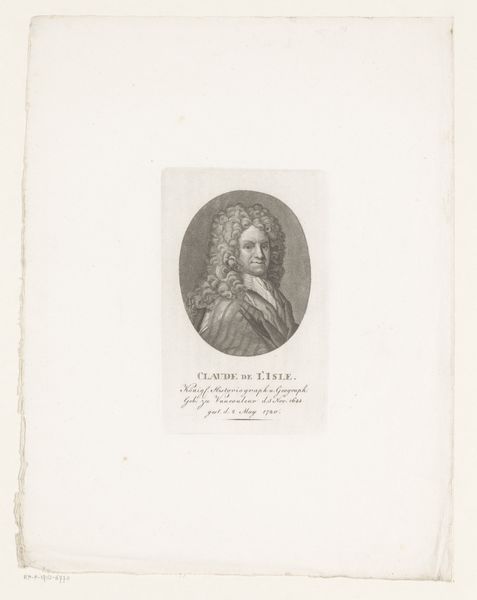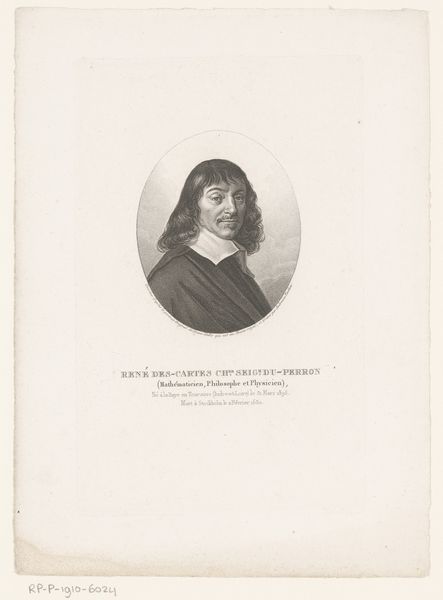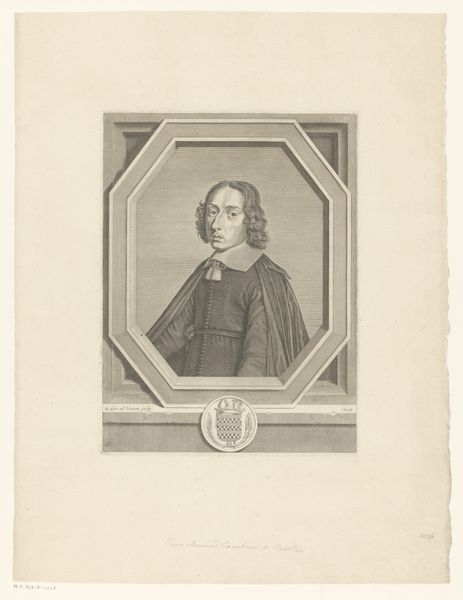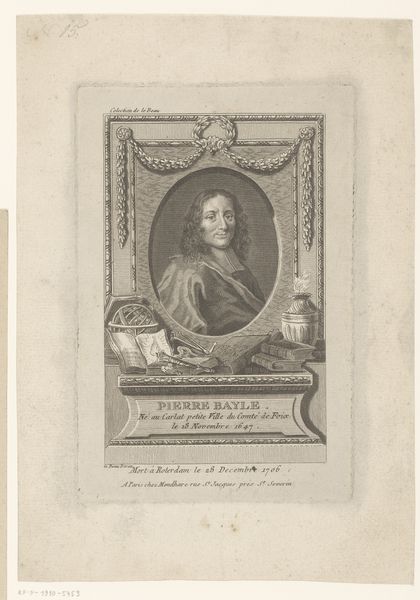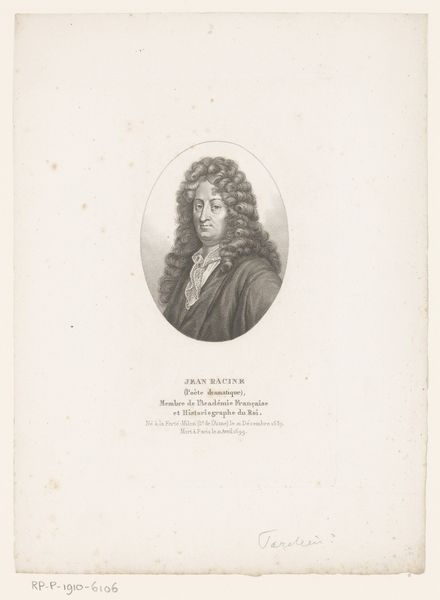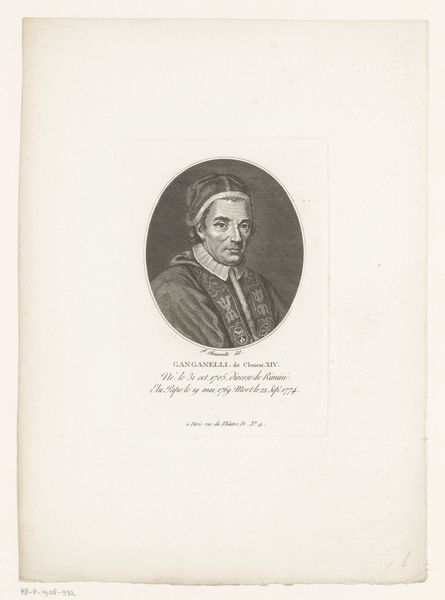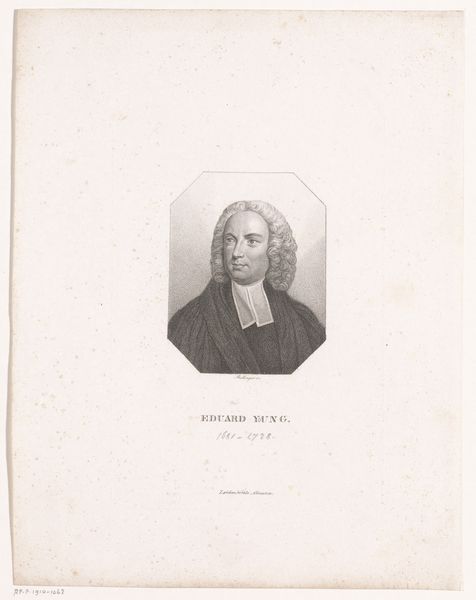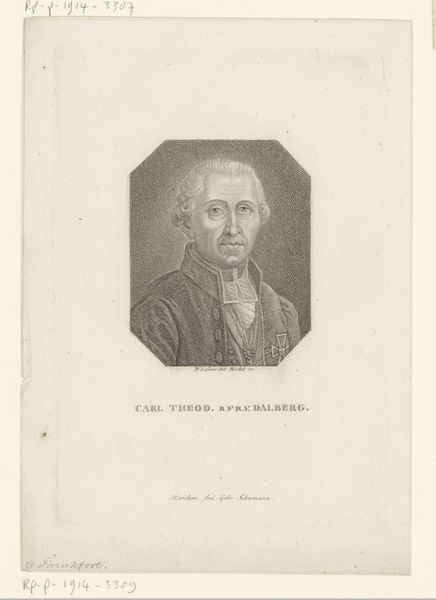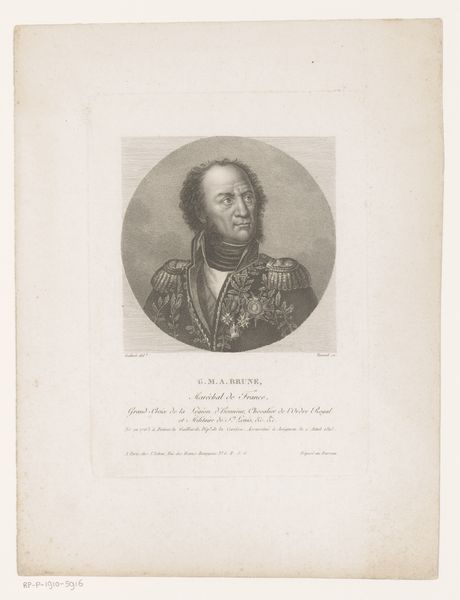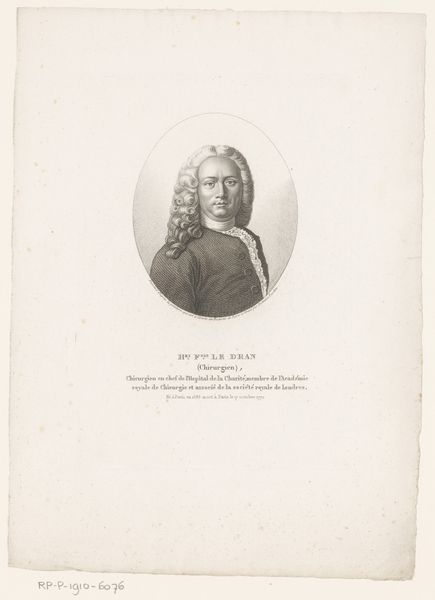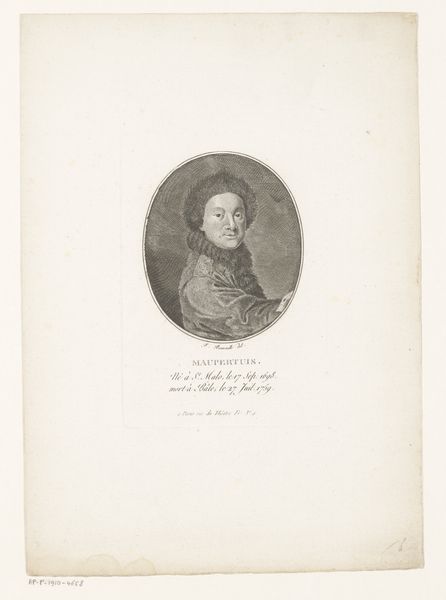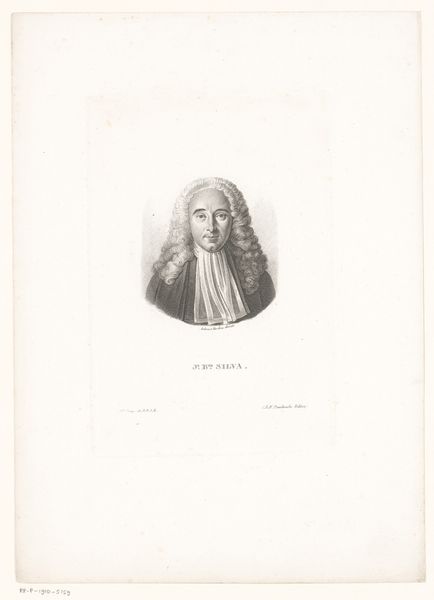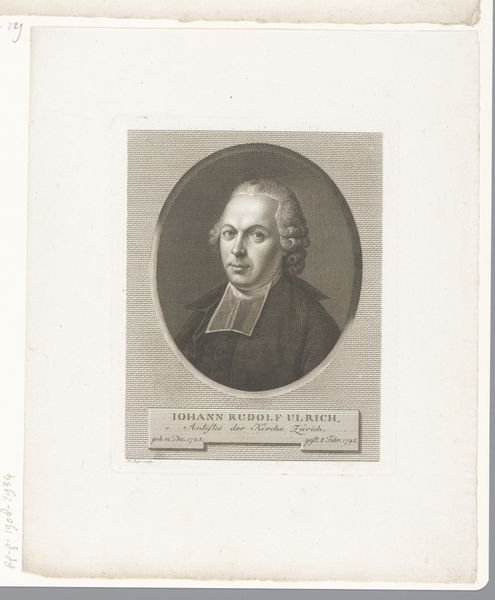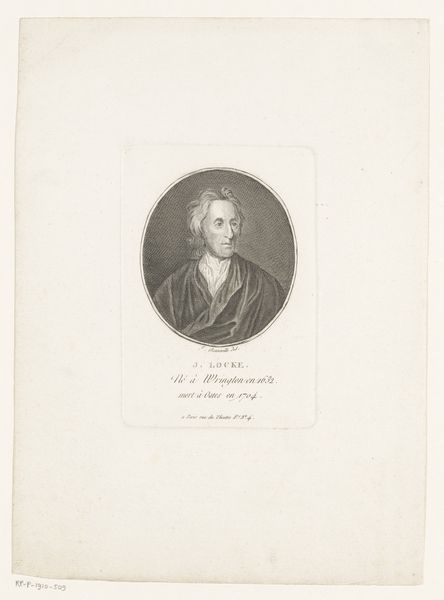
Dimensions: height 203 mm, width 123 mm
Copyright: Rijks Museum: Open Domain
This portrait of mathematician John Wallis was made by Giovanni Battista Cipriani, who lived from 1766 to 1839. It's a print, an image made by pressing paper against an inked surface, likely a metal plate. Look closely, and you’ll see fine lines that create light and shadow, a testament to the engraver’s skill. Prints were ideal for circulating images widely and quickly, part of a burgeoning media landscape. Consider the labor involved: an artist creating the original image, a skilled engraver translating it to a plate, printers operating the press, and distributors getting the image to the public. Each of these steps depended on specific know-how and social networks. In the 18th and 19th centuries, prints like these democratized art, making images accessible beyond the elite. So, while this portrait commemorates an intellectual, it’s also a product of a complex, evolving system of production and consumption. Paying attention to these material and social factors enriches our understanding of the image itself.
Comments
No comments
Be the first to comment and join the conversation on the ultimate creative platform.
